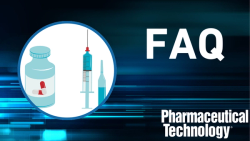
OR WAIT null SECS
- About Us
- Advertise
- Contact Us
- Editorial Info
- Editorial Advisory Board
- Do Not Sell My Personal Information
- Privacy Policy
- Terms and Conditions
© 2026 MJH Life Sciences™ , Pharmaceutical Technology - Pharma News and Development Insights. All rights reserved.
WHO Provides a Statement on COVID-19 Vaccines
Pointing to the continued circulation and evolution of COVID-19, WHO published a statement on the COVID-19 vaccine antigen composition to respond to variants of the virus.
On Dec. 23, 2024, the World Health Organization (WHO) provided an update on COVID-19 vaccine antigen composition, pointing to the continued evolution of variants of the virus. A review of data has resulted in the recommendation that the current COVID-19 vaccine antigen composition, monovalent JN.1 lineage variant(NextStrain: 24A, GenBank: PP298019, GISAID: EPI_ISL_18872762), be used to enhance neutralizing antibody responses to JN.1 and its descendants. Vaccine antigens from more recent variants or alternative formulations is also a possible approach.
WHO’s Technical Advisory Group on COVID-19 Vaccine Composition (TAG-CO-VAC) has been monitoring genetic and antigenic evolution of SARS-CoV-2 variants and the performance of COVID-19 vaccines against these variants. WHO then advises manufactures of vaccines and regulatory authorities on implications of updates to the vaccines.
In December 2024, the TAG-CO-VAC met to review the evolution of SARS-CoV-2. Also discussed were the immune responses to the infection and vaccination. Currently approved COVID-19 vaccines were evaluated by the advisory group, which then provided an update on antigen composition. Previously, in April 2024, the group recommended the use of a monovalent JN.1 lineage vaccine antigen in response to JN.1 and its descendants. Manufacturers responded by updating their COVID-19 vaccine antigen composition to monovalent JN.1, with some of these approved by regulatory authorities.
The TAG-CO-VAC reviewed evidence that included the SARS-CoV-2 genetic evolution, antigenic characterization of previous and emerging SARS-CoV-2 variants, immunogenicity data on antibody responses seen in approved vaccine antigens, preliminary immunogenicity data on immune responses, vaccine effectiveness estimates of approved vaccines against XBB.1 and JN.1 lineages, and preliminary preclinical data and clinical immunogenicity data on candidate vaccines. The evidence, according to WHO, show that SARS-CoV-2 continues to circulate globally, resulting in severe disease and death, especially in people 65 years and older and/or with existing conditions, and current variants are all derived from JN.1. Based on data using antisera, it appears thatcirculating JN.1-derived variants (JN.1, JN.1.16.1, KP.2, KP.2.3, KP.3, KP.3.1.1, LB.1 and XEC) are antigenically closely related. Data from vaccination frommonovalent JN.1 or KP.2 antigens showed a significant increase in neutralizing antibody titers that cross-reacted with all JN.1 descendent lineages tested.
“The weekly proportion of XEC sequences among all SARS-CoV-2 sequences submitted to GISAID continues to increase, while the weekly proportions of all other Variants of Interest (JN.1) or Variants Under Monitoring (KP.2, KP.3, KP.3.1.1, JN.1.18 and LB.1) are now declining,” WHO stated in a press release (1). “There are other JN.1-derived variants that are currently in low proportions, but which have mutations that may give them an advantage over XEC: currently LP.8.1, NP.1, LF.7.2 are variants being monitored and/or characterized.”
There are limitations to the data that were available for review, however, according to WHO. Gaps have been seen in the reporting of cases, hospitalizations, and deaths from WHO Member States. It is also hard to predict the timing of mutations and emerging variants, the organization said in the statement. Immunogenicity data against current variants are also not available for all COVID-19 vaccines. In addition, there are limitations in the number and geographic diversity of studies.
“Although neutralizing antibody titers have been shown to be important correlates of protection from SARS-CoV-2 infection and of estimates of vaccine effectiveness, there are multiple components of immune protection elicited by infection and/or vaccination,” said WHO. “Data on the immune responses following JN.1 descendent lineage infection or monovalent JN.1, KP.2 or XBB.1.5 vaccination are largely restricted to neutralizing antibodies. Data and interpretation of other aspects of the immune response, including cellular immunity, are limited.”
The TAG-CO-VAC is encouraging the generation of more data and the further development of COVID-19 vaccines. “The TAG-CO-VAC will continue to closely monitor the genetic and antigenic evolution of SARS-CoV-2 variants, immune responses to SARS-CoV-2 infection and COVID-19 vaccination, and the performance of COVID-19 vaccines against circulating variants,” WHO stated in the release. “The TAG-CO-VAC will also continue to reconvene every six months to evaluate the implications for COVID-19 vaccine antigen composition.”
Reference
1. WHO. Statement on the Antigen Composition of COVID-19 Vaccines. Press Release. Dec. 23, 2024. https://www.who.int/news/item/23-12-2024-statement-on-the-antigen-composition-of-covid-19-vaccines



